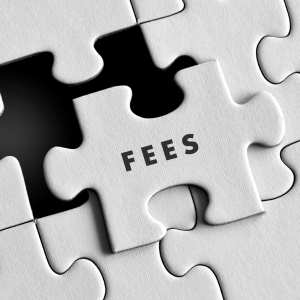
Analyzing the Role of HOA Fees in Texas Real Estate
HOA fees are rather significant in Texas real estate transactions. For buyers and sellers in a property sale, these fees can impact property value, community living expenses, and living costs.
What Are HOA Fees and How Do They Affect Property Transactions?
HOA fees are payments homeowners make regularly to preserve shared areas and conveniences. In property transactions, these costs affect negotiations between sellers and buyers. Since they influence their monthly budget, buyers should be aware of the fee structure. Sellers must reveal these fees since they affect the attractiveness of a property.
How Are HOA Fees Structured in Texas Communities?

The financial needs and budget of a community determine HOA fees in Texas. These fees pay for various services, usually maintenance, security, and shared facilities. Fees vary; some communities have more amenities, so their fees are higher. Variations also exist across areas based on local economies and the needs of each community.
What Is the Impact of HOA Fees on Property Value?
HOA fees can greatly influence property value. While reasonable fees that maintain community standards might make a property more appealing, high fees could deter purchasers. Knowing how HOA fees fit property investments and market trends is essential for buyers and sellers in Texas. Well-run fees over time could result in either steady or even rising property values.
Texas HOA Fee Regulations and Legal Considerations
Knowing the laws and rules about HOA fees in Texas is vital for staying compliant and protecting your rights in real estate deals. These regulations dictate how fees are managed and enforced.
Are There Specific Laws Governing HOA Fees in Texas?
Yes, Texas law has specific rules for HOA fees. These laws provide guidelines for assessing, collecting, and enforcing fees. Following state laws helps ensure that HOAs and homeowners know their rights and responsibilities. Knowing these legal requirements is essential for anyone involved in Texas real estate.
How Do HOA Fees Influence Legal Obligations for Buyers and Sellers?

HOA fees affect the legal obligations of both buyers and sellers. When making real estate contracts, it’s necessary to understand how these fees fit into the closing process. Negotiations often deal with who is responsible for unpaid fees, which can change the financial terms set by title companies.
What Legal Steps Should Be Taken If Disputes Arise Over HOA Fees?
If there are disputes over HOA fees, there are legal steps you can take. Mediation is a good first step to resolve conflicts. If needed, legal action may be required. Getting help from a lawyer who knows Texas HOA law is a good idea to understand your rights and obligations. A straightforward approach to solving disputes helps make sure you reach a fair result.
For more insights or help with real estate transactions in Texas, consider contacting professionals like Investor Home Buyers for expert advice and guidance.
3. Financial Responsibilities: Who Pays HOA Fees at Closing?
How Are HOA Fees Distributed Between Buyers and Sellers?
In Texas, who pays the HOA fees can differ based on the real estate deal. Generally, the seller and buyer must decide how these fees are handled. Sometimes, the seller pays HOA fees in Texas to make the offer more attractive. Other times, the buyer pays HOA fees as part of their closing costs. It is also possible for the buyer and seller to split the HOA fees when closing.
What Factors Determine Who Pays the HOA Fees in Texas Real Estate Closings?

Several factors can decide who covers HOA fees at closing in Texas. The title company may handle the details concerning Texas HOA fees. A real estate professional might play a role in discussing who pays what. Sometimes, a seller contribution to HOA fees is arranged. Other times, the buyer has more responsibilities for the fees. Ultimately, it depends on the agreement reached through negotiation.
Can HOA Fees Be Negotiated During the Closing Process?
Yes, you can negotiate HOA fees during closing. Negotiations might lead to the seller offering credits for these fees, which happens often in Texas real estate deals. The success of HOA fee negotiations depends on the negotiation skills of both the buyer and seller, along with their experts. Such discussions can reduce costs for one side or lead to sharing the expenses.
4. Exploring the Costs: Breakdown of HOA Fees at Closing
What Are the Common Components of HOA Fees in Texas?
To sum up, several components comprise usual HOA fees. These include specific fees at closing for administrative expenses or assessments and regular HOA dues for the upkeep of community areas. Texas HOA fee rules and real estate transaction law specifically address these fees.
How Are HOA Transfer Fees Handled in a Typical Sale?

A transfer fee is a key component of HOA fees in a property sale. The HOA transfer fee in Texas pays for expenses related to changing ownership records. Usually, the title company managing the sale lists these transfer fees during closing. Some sellers may also pay an HOA estoppel fee to verify that there are no outstanding debts before the transfer.
Are Prorated Fees Common in Texas HOA Transactions?
Prorated HOA fees, common in Texas, allow expenses to vary depending on the closing date. This guarantees that each party pays their fair share of fees for the period they own the property. Usually, the parties divide the financial burden of these fees rather fairly. With buyers and sellers contributing appropriately, these flexible HOA fees help to guarantee fairness throughout the closing process.
5. Best Practices for Managing HOA Fees During a Home Sale
5.1 What Strategies Can Sellers Use to Minimize HOA Costs?
When selling a home, handling HOA fees well can affect your financial results. Here are some strategies sellers can use:

- Negotiate with Buyers: Sellers might discuss who pays the HOA fees in the sale. You can offer to cover part of these costs to make your offer more attractive to buyers.
- Review HOA Documents: Look at your HOA’s financial details and any upcoming special charges to plan your sale better.
- Timing the Sale: Plan your sale around major HOA payments or upcoming assessments to avoid extra costs.
These strategies can help sellers manage HOA fees in Texas real estate deals.
5.2 How Can Buyers Prepare for Potential HOA Fees at Closing?
Buyers should be ready for HOA fees at closing. Here’s how:
- Research HOA Fees: Before you make an offer, check the HOA fees in the area. Knowing this helps you budget right.
- Include HOA Fees in Financing Plans: Ensure your loan plans cover these extra costs. This preparation avoids surprises at closing.
- Consult with Professionals: Talk to your real estate expert about possible fees and upcoming charges after your purchase.
These steps help buyers understand and manage future costs in Texas real estate.
7. Comparing HOA Fees Across Different Texas Regions
How Do HOA Fees Vary Between Urban and Rural Areas in Texas?

In Texas, HOA rates sometimes vary depending on urban or rural location. Higher demand for amenities and maintenance in cities usually translates into higher fees. In rural areas with fewer services, fees are often lower as well.
Are There Notable Differences in Fees Among Major Texas Cities?
Indeed, HOA rates differ in big cities, including Houston, Dallas, and Austin. These fees are influenced by local living expenses and real estate conditions. Factors particular to a city include the scale of the development and accessible facilities.
What Regional Trends Affect the Cost of HOA Fees?
Regional trends influence Texas HOA rates, including property values, economic conditions, and population growth. Growing areas typically pay more because of higher housing demand and maintenance requirements.
8. Preparing for Closing: Essential Steps for Handling HOA Fees
What Documents Are Needed to Finalize the Payment of HOA Fees?

To finalize HOA fee payments, you will need specific documents. These include the HOA resale certificate, which contains association information and any outstanding fees, and the closing disclosure, which lists all transaction costs.
How Can Buyers and Sellers Verify the Accuracy of HOA Charges?
Buyers and sellers should verify the accuracy of HOA fees to avoid mistakes. Reviewing the closing disclosure and requesting an itemized statement from the HOA can help. Consulting with a real estate professional or lawyer is also a good idea.
What Are the Key Deadlines and Procedures Involved in Settling HOA Fees?
Buyers and sellers must meet deadlines and adhere to closing procedures when settling HOA fees. They should also understand legal requirements and pay fees in a timely manner to avoid transaction delays.
Best Practices for Managing HOA Fees During a Home Sale
Managing HOA fees during a home sale involves careful planning and negotiation. Understanding each party’s roles can help avoid unexpected costs and ensure a smooth transaction.
What Strategies Can Sellers Use to Minimize HOA Costs?
Sellers in Texas can reduce HOA costs by being proactive:
- Negotiate with Buyers: Discuss who will pay the HOA fees at closing.
- Understand Legal Obligations: Know that sellers are responsible for HOA fees until the property transfer is complete in Texas.
- Work with a Real Estate Professional: An expert can help you navigate HOA fee negotiations in Texas, comply with laws, and maximize your gains.
How Can Buyers Prepare for Potential HOA Fees at Closing?
Buyers should prepare for possible HOA expenses when closing a real estate deal:

- Research HOA Fees in the Area: Learn about typical HOA fees in Texas neighborhoods.
- Budget for Fees: Save funds for potential HOA fee payments at closing, including escrow needs.
- Clarify Financial Responsibility: Talk with the seller and your real estate professional about who covers HOA fees in Texas.
What Role Does a Real Estate Professional Play in Handling HOA Fees?
Real estate professionals are valuable when dealing with HOA fees at closing in Texas:
- Negotiation: They help negotiate fee allocation between buyers and sellers.
- Compliance: Ensure all parts of Texas real estate law about HOA fees are followed during transactions.
- Expert Guidance: Offer insights into real estate transaction fees in Texas, helping to address any challenges.
Evaluating HOA Dues: Understanding the Long-Term Implications
Evaluating HOA dues helps understand their long-term financial impacts. This knowledge aids in better financial planning and investment decisions.
What Are the Long-Term Financial Impacts of HOA Dues?
Considering the long-term financial impacts of HOA dues is crucial for buyers and investors:
- Regular Expenses: Be prepared for ongoing HOA dues at closing in Texas, which affect financial planning.
- Impact on Property Values: Understand how HOA fees may influence property values and future financial obligations.
How Do HOAs Utilize Collected Fees Over Time?
Knowing how HOAs use collected fees is important for assessing their effectiveness:

- Budget Allocations: In Texas, HOAs typically allocate budgets for maintenance, amenities, and improvements.
- Operational Costs: Funds also cover administrative costs and reserve funds for future projects, keeping the community maintained.
Why Is It Important to Understand the Financial Health of an HOA?
Knowing the financial health of an HOA is vital for anyone in real estate transactions:
- Transparency: Review the HOA’s transparency in financial reporting and budgeting.
- Informed Decisions: Check the HOA’s financial stability to make smart investment choices and ensure satisfaction with your purchase.
For help with HOA fees and other real estate issues in Texas, contact a trusted real estate professional like Investor Home Buyers for expert guidance tailored to your needs.
FAQs:
Who typically pays the HOA fees when closing in Texas?
In Texas, depending on the agreement they make during the sale, either the buyer or the seller can pay the HOA fees at closing.
What are the standard fees associated with closing a home sale in Texas?
Typical closing costs in Texas include title fees, appraisal fees, inspection fees, and sometimes prorated HOA dues. These costs can vary based on the transaction.
Are HOA fees different for FSBO (For Sale By Owner) in Texas?
HOA fees in FSBO sales are usually handled like in regular sales. At closing, the buyer and seller must agree on who pays these fees.
Can HOA fees be negotiated during the closing process in Texas?
Yes, HOA fees can be negotiated. Buyers and sellers can discuss how to manage these costs during the sale.
What is an HOA transfer fee, and who pays it?
When ownership records change, an HOA transfer fee is charged. In Texas, this cost is negotiable between the buyer and seller.
How does the escrow process handle HOA fees at closing in Texas?
Depending on the escrow company and the sale’s terms, funds may be collected during escrow to accurately pay HOA fees at closing.
What role do attorneys play in managing HOA fees during a real estate transaction in Texas?
Attorneys help understand legal rules for HOA fees and negotiate who pays them during the closing process.
Are there any legal requirements in Texas regarding HOA fee payments at closing?
Texas law does not dictate who must pay HOA fees at closing, so it’s negotiable. Knowing the community rules and consulting a lawyer can help.
Key Insights
- In Texas, who pays the HOA fees at closing can vary. Typically, the seller covers certain fees, like the HOA transfer fee. It’s important to clearly outline which party pays these fees to prevent any confusion.
- Understanding HOA fees at closing in Texas involves looking at prorated fees and any estoppel or document fees. These costs can impact the final amount due at closing.
- Texas real estate transactions often include standard closing costs, such as attorney and title fees. Reviewing the closing disclosure is crucial for a clear breakdown of these expenses.
- Seller closing costs in Texas may include contributions to HOA fees. Negotiations between the buyer and seller can lead to adjustments in these costs.
- Evaluation of potential HOA fee obligations is essential for for-sale-by-owner (FSBO) transactions. Sellers should also understand the legal requirements for HOA fee distribution in Texas.
- Buyers are often responsible for HOA fees at closing, which may involve escrow considerations. Confirming financial responsibility early can help ensure a smooth transaction.
- Sellers might offer credits for HOA fees in Texas, affecting the overall closing cost allocation. These credits can be negotiated for buyer incentives.
- Elements like flat rates or adjustable HOA fees can help manage costs. When finalizing fee settlements, always review Texas property law for requirements.
- Make sure all Texas real estate transaction fees are transparent. Seek professional advice to navigate processes efficiently, potentially saving on costs like HOA lien release or settlement fees.
Keep reading to learn how to sell a house in Texas. This information applies to cities like El Paso, Houston, Dallas, Austin, San Antonio, Fort Worth, and nearby areas. For more help, contact us at (214) 253-4544.
Get An Offer Today, Sell In A Matter Of Days
Resources To Help You Sell A House in Texas


